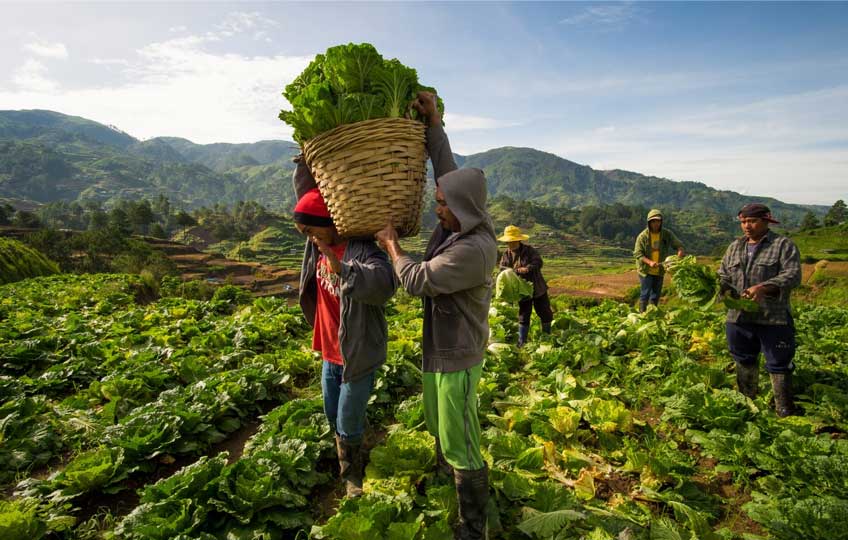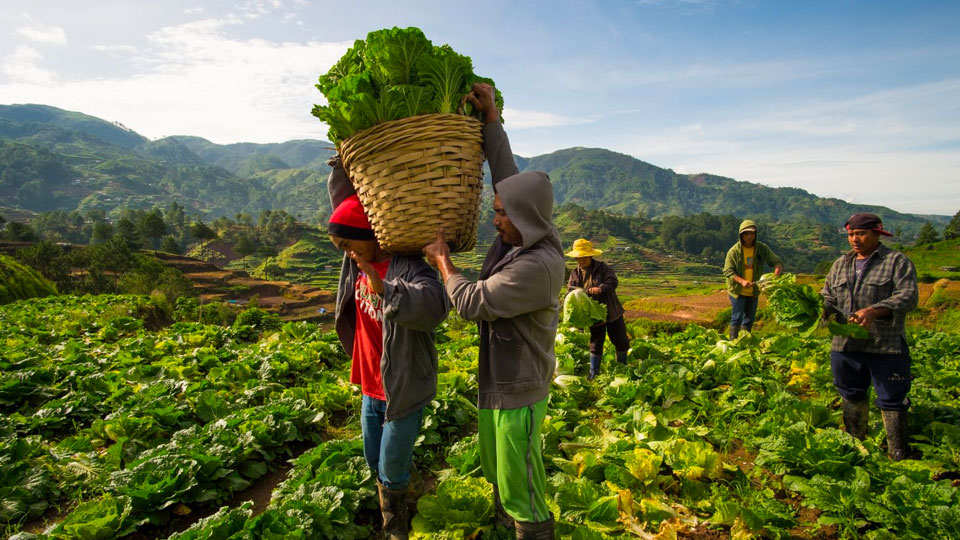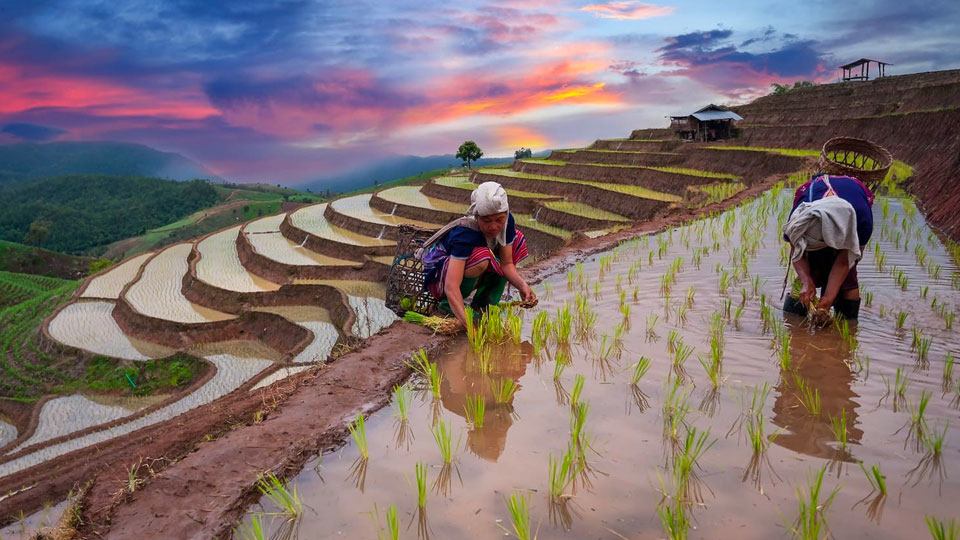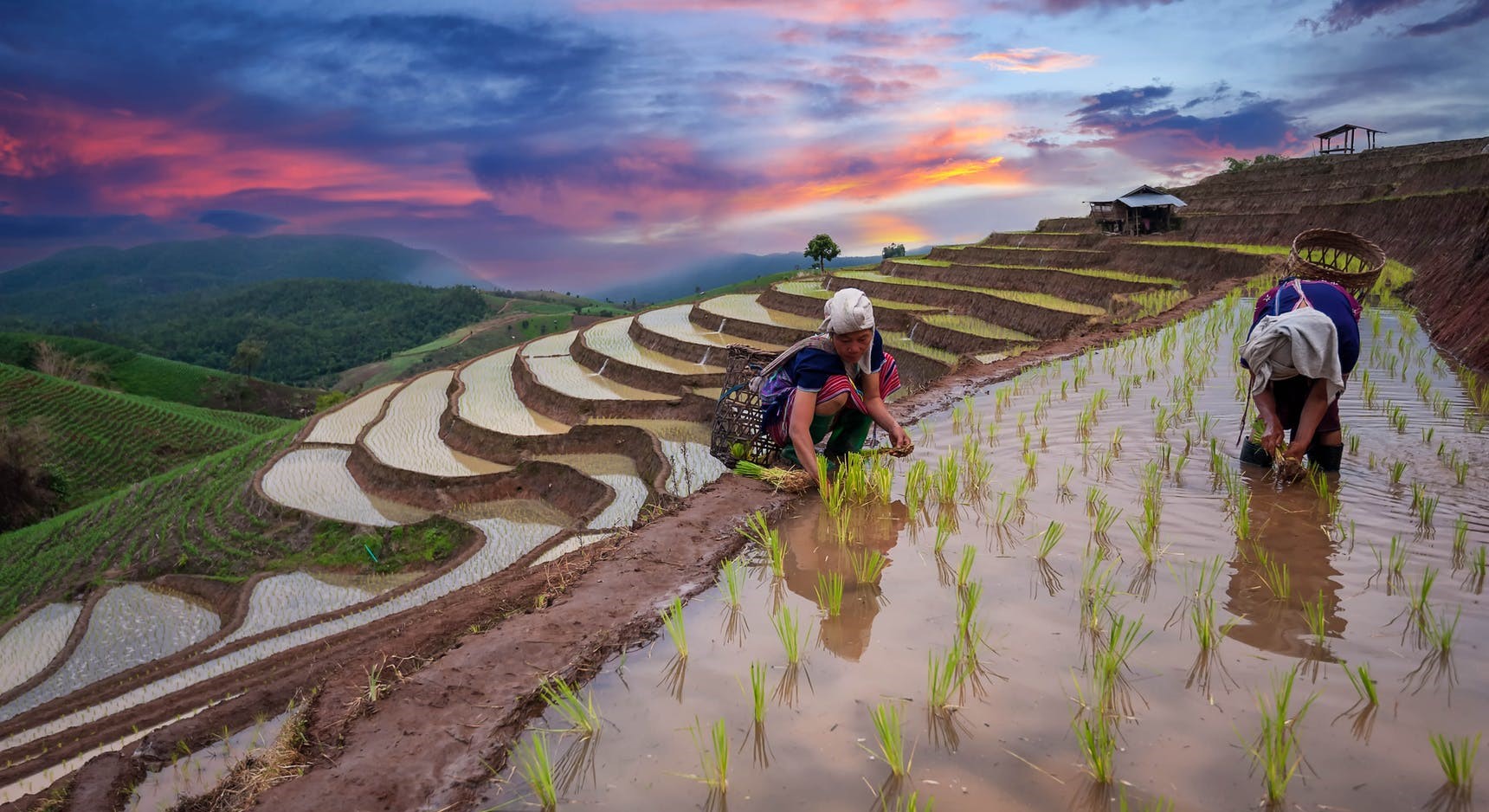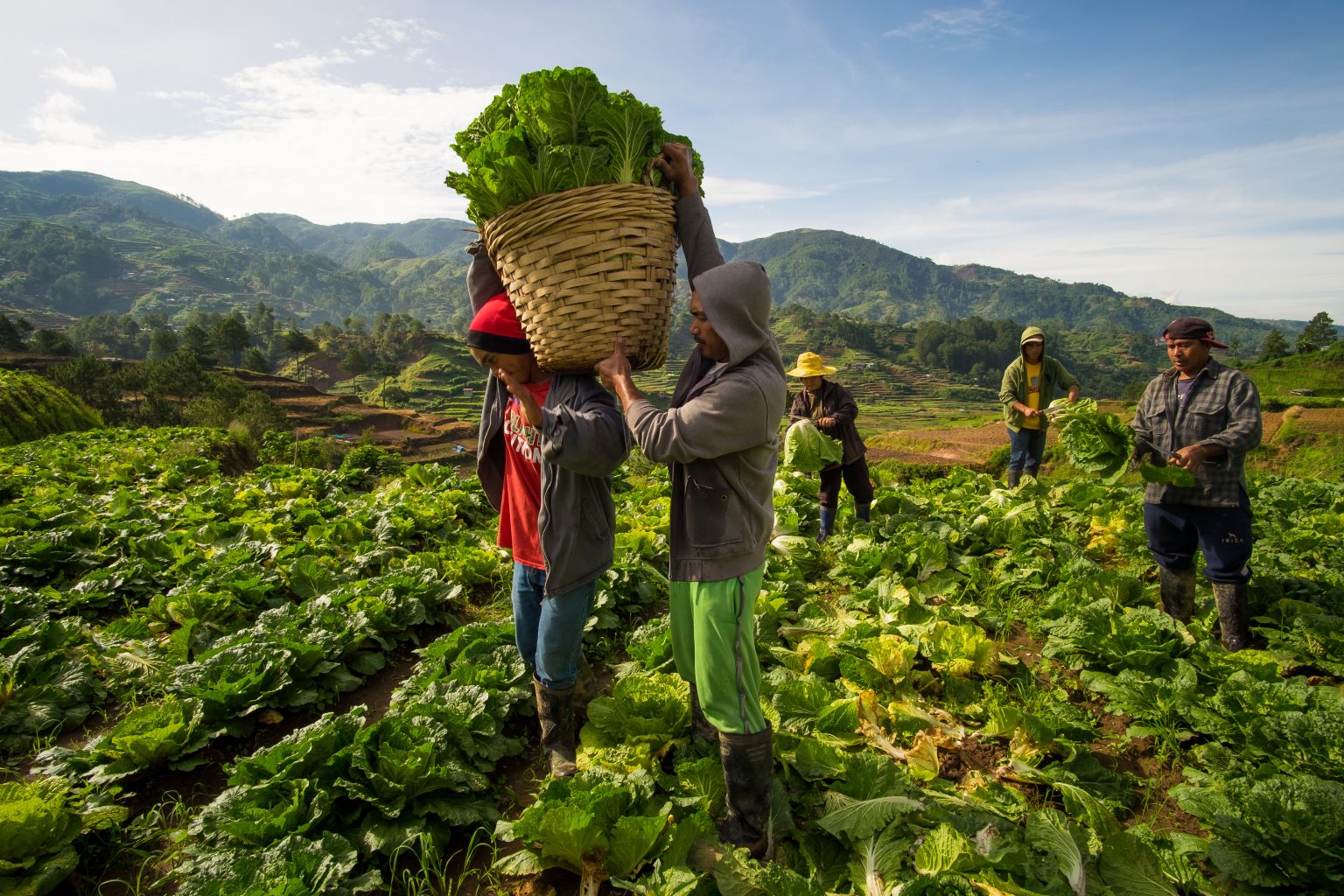
Progress towards achieving food security in many countries, particularly countries in Asia depending on food imports and remittances, had already slowed down and reversed in many cases due to Covid-19 pandemic. It is notable that the impact of the pandemic was more pronounced in many developing member countries of ADB because of the pre-existing challenges of their agriculture structure – climate change crisis, inefficient market and supply infrastructure, aging agricultural labor force, and declining agricultural resource. FAO and UNICEF estimated about 375.8 million people in Asia faced hunger in 2020, which is nearly 54 million more people than in 2019. More than 1.1 billion people did not have access to adequate food in 2020 – an increase of almost 150 million people in just one year. According to the sixth annual Global Report on Food Crises (GFRC 2022), an additional 236 million people across 41 countries/territories, included in the report, required livelihood support and assistance to prevent them from slipping into worse levels of acute food security in 2021.
These effects have been compounded by the Russian invasion of Ukraine. Russia and Ukraine rank among the top three global exporters of essential commodities like Wheat, Maize, Sunflower oil, Sunflower seed, Rapeseed, and Barley. As many as 13 countries in our region import more than 30% of at least one essential commodity from Russia and Ukraine. Disruptions in food and agri-inputs supply from Russia and Ukraine have intensified the food crisis in these through direct and indirect channels.
Many of our DMCs in the region are net food importers and therefore, vulnerable to food insecurity. Food already constitutes a significant part of consumer price indices in the region. For example, food accounts for nearly 30% of CPI in the Philippines and Thailand, and 49% in Tajikistan. A continued increase in food prices can potentially tip some of our DMCs towards extreme poverty, and economic and political instability.
Recognizing this ADB has moved quickly, joining other international financing institutions (IFIs) in formulating a collaborative action plan to address food insecurity. This action plan supports five goals: supporting vulnerable people, promoting open trade, mitigating fertilizer shortage, supporting food production, and investing in climate resilience agriculture for the future.
Having provided this swift action to help DMCs address food insecurity, we also recognized that money alone cannot solve the problem and one solution will not fit all countries given the heterogeneous nature of the problem across countries, and also noted the importance of south- south learning. Many research institutes, universities, and think tanks have been working across countries to develop pragmatic and actionable solutions to resolve evolving food security crises. For example, China Agricultural University launched their 2022 “China and Global Food Policy” report on 9 June. Similar work is being done in other DMCs to reform support to the agriculture sector required for improving food security. Against this backdrop, the proposed learning session will focus on brainstorming on how to enhance ADB’s support to food security based on the views and perspectives of the think tanks of different countries.
The webinar invites expert speakers from Peoples’ Republic of China, India, Indonesia and the Philippines to share the country context, nature of the problem and pragmatic solutions. The webinar aims to:
- Share the cross-country experiences of the evolving food security crisis, actions undertaken so far to deal with the crisis
- Brainstorm pragmatic and actionable solutions based on the cross-country expert views
- Promote south-south collaboration by cross-fertilizing ideas of experts from different countries.
Register via Zoom
| Time | Program |
|---|---|
| 14:00 – 14:05 | Introduction and moderation Qingfeng Zhang, Chief, Rural Development and Food Security (Agriculture) Thematic Group, concurrently OIC, Environment Thematic Group, Sustainable Development and Climate Change Department, ADB |
| 14:05 –14:10 | Opening Remarks Bruno Carrasco, Director General concurrently Chief Compliance Officer, SDCC, ADB |
| 14.10 – 14.25 | Keynote Presentation on 2022 China and Global Food Policy Report “Reforming Agricultural Support Policy for Transforming Agrifood Systems” Kevin Chen, Qiushi Chair Professor of Zhejiang University and Senior Research Fellow of IFPRI |
| 14:25 – 15:05 | Country presentations on Evolving Challenges of Food Security and Imperatives for Actions PRC: Kevin Chen, Qiushi Chair Professor of Zhejiang University and Senior Research Fellow of IFPRI India: Ashok Gulati, Infosys Chair Professor for Agriculture at the Indian Council for Research on International Economic Relations (ICRIER) Indonesia: Tahlim Sudaryanto, Senior Agricultural Economist, National Research and Innovation Agency (BRIN), Indonesia |
| 15:05 – 15:30 | Open discussions and Q&A |
| 15:30 – 15:55 | Distinguished speakers Weihua Liu, Executive Director, ADB Noor Ahmed, Executive Director, ADB Anthea Webb, Deputy Regional Director, World Food Program Fermin Adriano, Undersecretary for Policy, Planning and Research, Department of Agriculture, Government of Philippines |
| 15:55 – 16:00 | Closing and note of thanks Qingfeng Zhang, Chief, Rural Development and Food Security (Agriculture) Thematic Group, concurrently OIC, Environment Thematic Group, Sustainable Development and Climate Change Department, ADB |

